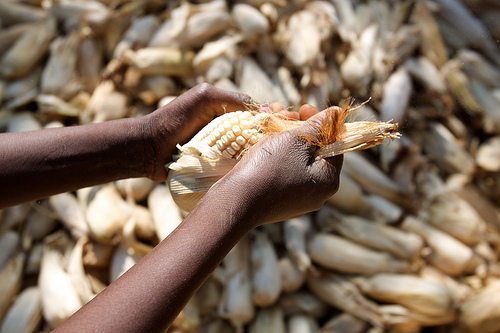

Economy
Oxfam: 10 biggest food firms pollute more than Scandinavia
The anti-poverty charity Oxfam has claimed that the world’s 10 largest food companies emit more greenhouse gases than the whole of Scandinavia – and are not taking appropriate steps to fight climate change.
In a new report, Oxfam said that Associated British Foods, Coca-Cola, Danone, General Mills, Kellogg’s, Mars, Mondelez International, Nestlé, PepsiCo and Unilever collectively emit 263.7m tons of greenhouse gases – more than Finland, Sweden, Denmark and Norway combined.
It added, however, that it believes firms could cut their emissions by 80m tons by 2020, if they use their immense power to become more sustainable – especially given that extreme weather, which has been linked to climate change, is already impacting their finances.
Oxfam executive director Winnie Byanyima said, “Too many of today’s food and beverage giants are crossing their fingers and hoping that climate change won’t disrupt the food system imagining somebody else will fix it.
“The ‘big 10’ companies generate over $1 billion a day and have great power to influence global food chains. The industry needs to do more to work towards ‘zero hunger’ in the world while undergoing a revolution in their production methods.”
According to Oxfam, agricultural production in the supply chain accounts for the largest share of emissions. While the report said that Nestlé, Unilever and Coca-Cola have some sort climate policies outlined, Kellogg’s and General Mills are criticised for their lack of climate commitments and poor disclosure of polluting practices.
However, the two firms rejected criticism, with Kellogg’s saying it has plans to cut emissions and energy use by 15-20% by 2015 and General Mills claiming it “has been taking steps to reduce greenhouse gas emissions in its operations for many years”.
Byanyima added, “The food industry has a moral imperative and a business responsibility to dramatically step up its efforts to tackle climate change.”
Photo: Department of Foreign Affairs and Trade via flickr
Further reading:
Climate change could prolong world hunger for decades, says Oxfam
Feeding the world sustainably means investing in better solutions
Climate change could reduce crop yields as soon as 2030
Kellogg’s and Mars among poor performers in Oxfam ethics scorecard






























